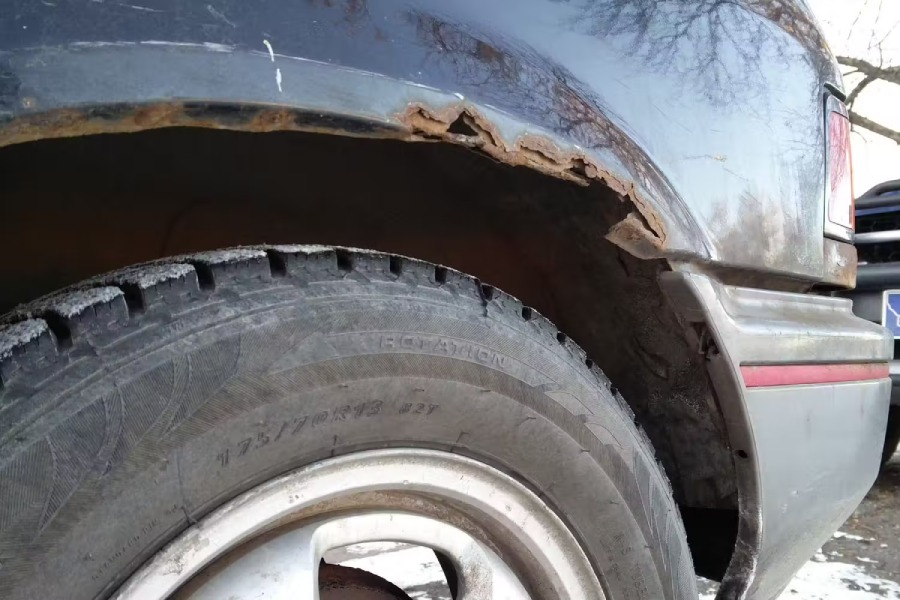As a car enthusiast, taking care of the vehicle and performing regular maintenance is crucial for safeguarding its longevity. Yet, despite the efforts, you may notice that rust has formed on your vehicle. Rust can negatively impact not only the vehicle’s aesthetic appeal but also its structural integrity. In such a case, you may ponder about how to stop car rust from spreading?
Worry not, as we have the answers. In this post, we will talk about the detrimental effects of rust and unveil preventative measures and effective strategies to combat its spread. Let’s get right into it!
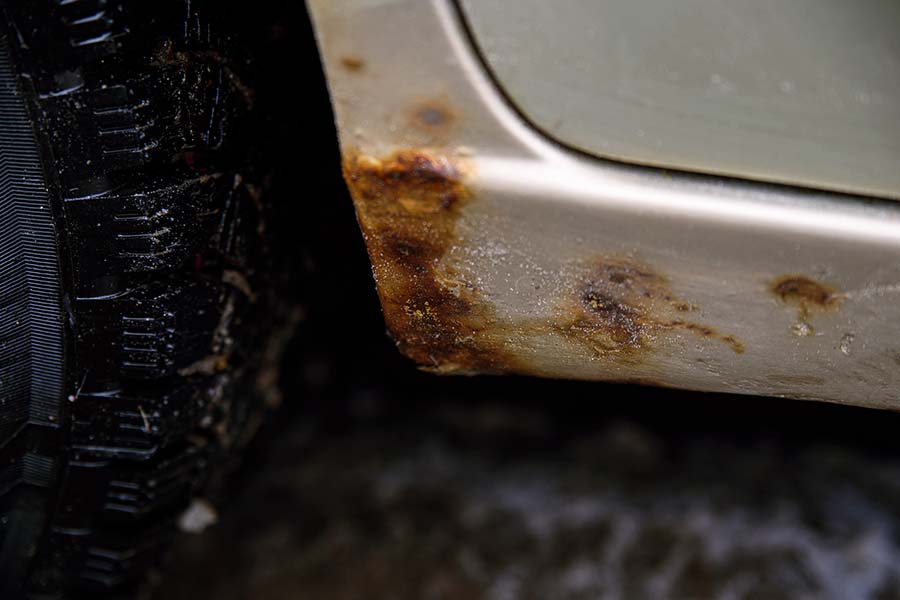
How to Stop Car Rust from Spreading
Rust is the silent adversary of vehicles. If left untreated, it can cause severe damage to vehicles. The good news is there are several ways for neutralizing rust on cars. To halt its progression, you must implement proven measures beyond your vehicle that will help your vehicle look shiny and remove corrosive elements. A good rule of thumb is washing every two weeks.
Once you wash your vehicle, ensure to dry it thoroughly to prevent any moisture from staying in the nooks and crevices of your vehicle. You can use a microfiber towel to do so effectively. If not properly dried it may lead to mold inside the vehicle.
Waxing and rust-proofing the car
After washing, follow up by applying quality wax so that you create a protective barrier against moisture and impact from other elemental contaminants. We recommend waxing every three to four months to diminish the chances of rust formation.
When waxing, follow the instructions on the bottle and cover all the car’s areas.
If you live in an area with road salt exposure, a good option is to have a professional apply a rust-proof protecting coating. Check this video to find out more about the process of rust-proofing your vehicle.
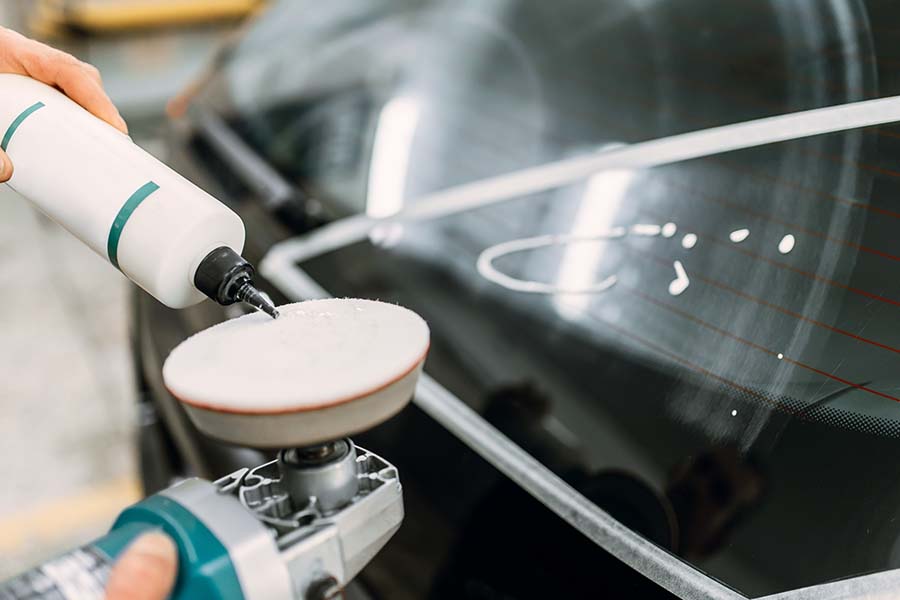
Keep your car covered
An effective way to stop the spreading of rust is to keep your vehicle covered, as rain, snow, and humidity can damage your car over time. Hence, park your vehicle in your garage or cover it with a suitable car cover to protect it from natural elements. However, ensure the cover is the right size to prevent moisture and damage.
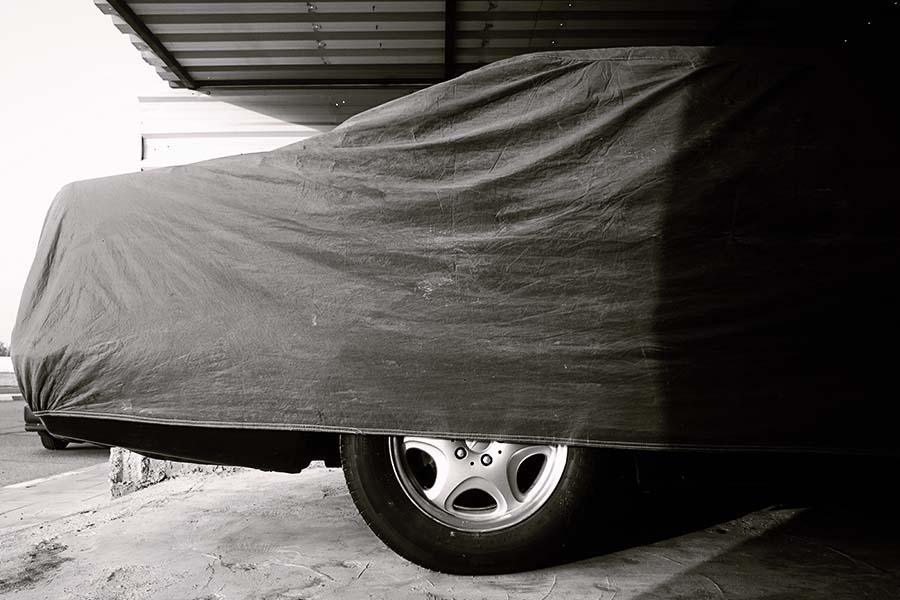
Fix dents and scratches
Scratches and dents on your car can be a breeding ground for rust. When the metal is exposed, this means that moisture can get in and cause rust formation. Therefore, it is necessary to fix them immediately to prevent rust from forming and spreading.
Use rust inhibitors
When battling rust, consider using rust inhibitors or corrosion-resistant coatings on your vehicle’s vulnerable areas. These specially formulated products add an additional layer of protection against the onset of rust.
While there are several different types, the process is straightforward. All you need to do is apply the products directly on the car. Remember that certain products may require multiple applications or specific preparation steps to be effective.
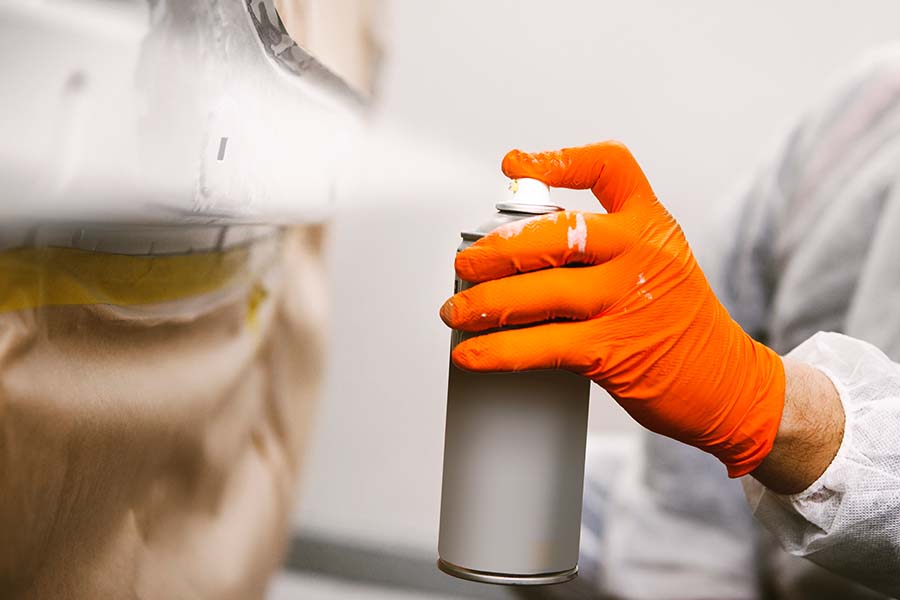
Regular maintenance
Regular vehicle maintenance is not only necessary for changing oil or rotating tires. It also plays a significant role in preventing rust and preserving the overall condition of your vehicle. Here is what you can do:
- Perform inspections– conduct routine car inspections and pay special attention to areas prone to rust. These include the undercarriage, wheel wells, and around the edges of doors. Look for bubbles or discoloration, which can be an early sign of rust formation.
- Make prompt repairs– if you discover any signs of rust while inspecting, address them promptly to prevent extensive damage. In case you notice any signs of water leaks, it is essential to fix them immediately.
- Check fluid– make sure that all fluid levels are at recommended levels. This is especially the case for brake and transmission fluids. The proper fluid levels reduce the risk of rust-related issues and contribute to optimal functioning.
Checking the Drain Holes and Rocker Panels
The first line of defense against spreading rust involves meticulously inspecting and maintaining drain holes and rocker panels. So, how to stop rust spots from spreading to car? To ensure your car’s vulnerable areas are rust-free, follow these instructions:
- Locate and identify the drain holes – the first step is to identify the drain holes in the undercarriage. Their typical location is along the edges of doors and lower body panels.
- Inspect for any blockages – inspect the drain holes and check for debris or dirt clogging. Use a small tool, like a wire or compressed air, to clear any obstructions that you may encounter.
- Examine the rocker panels – the rocker panels are also prone to rust. Hence, pay close attention to them, and if you notice any spots, address them promptly to prevent further corrosion.
- Applying protective coatings – once you clean the drain holes and rocker panels, consider applying rust inhibitors or rust prevention sprays for an added defense against rust.
Proper Washing Techniques to Prevent Salt Buildup
The salt buildup is a notorious contributor to the formation of rust in vehicles. Hence, to protect your vehicle from corrosion, adopt the following washing techniques:
- Regular washing – as mentioned before, regular washing with a high-pressure cleaner is essential for preventing vehicle corrosion. Ensure you wash the car even during the winter months or after driving in salty conditions.
- Focus on the underside – when washing, pay particular attention to the underside of your car, which includes the wheel wells and undercarriage. Salt tends to accumulate in these areas, accelerating the corrosion process.
- Thorough rinse – after washing the car to remove salt residues, ensure a thorough rinse with a high-pressure hose.
Impact of Rust on the Vehicle
Understanding the potential consequences of rust on cars can help you decide which measures to apply. Rust forms on the metal’s surface, making it more susceptible to cracking and breaking.
Rust build-up can damage crucial mechanical components such as brake lines, fuel lines, and exhaust systems, leading to expensive repairs. It weakens the vehicle’s structural integrity in severe situations, compromising its safety during collision.
Besides functionality, rust can also significantly diminish the car’s aesthetic appeal, making your car look old and worn out. If you plan on selling the vehicle, the rust can affect resale value.
Conclusion
Knowing how to stop car rust from spreading goes a long way toward preserving your vehicle’s structural integrity, mechanical functionality, and aesthetic appeal for years to come. By regularly inspecting and maintaining vulnerable areas and adopting proper washing techniques, you can effectively prevent and stop its progression. Stay aware, be prompt, and enjoy a ride-free drive.

